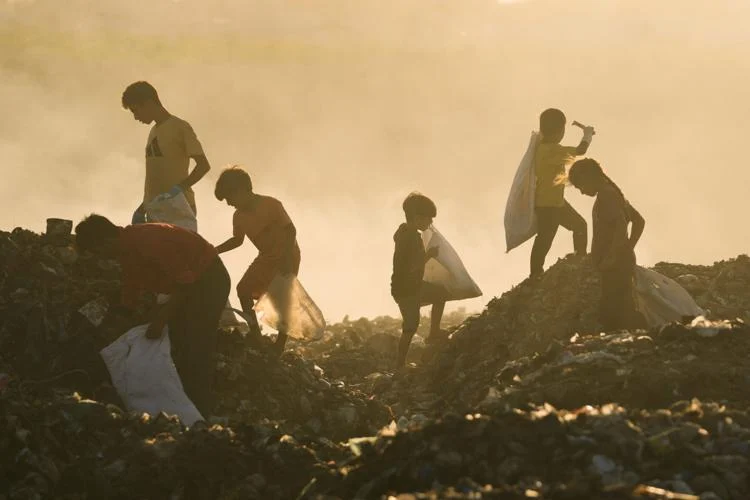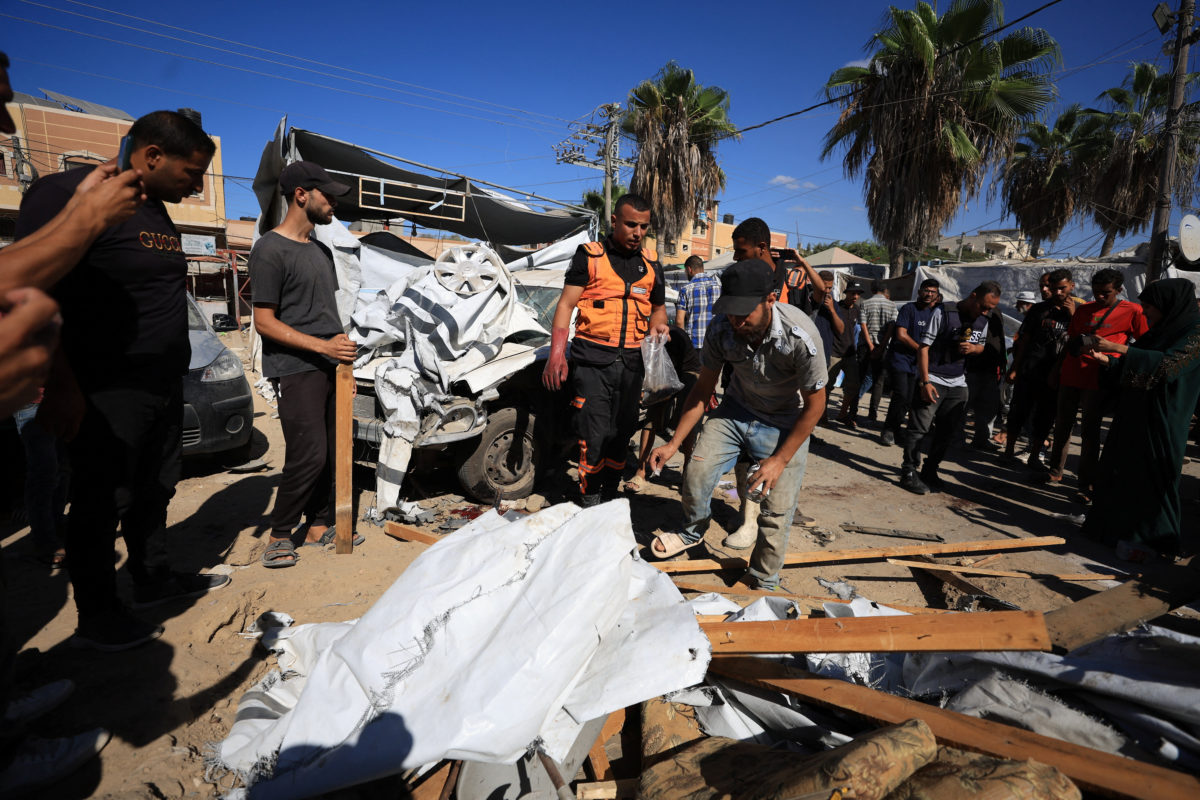The world reeled from two separate tragedies on Wednesday: escalating violence in Gaza and a devastating earthquake in the Philippines. Both events underscored the fragility of human life and the challenges faced by communities caught in crisis.
In Gaza, Israeli airstrikes left at least 16 Palestinians dead in multiple locations across the besieged territory. One of the most devastating attacks struck Al-Falah school in eastern Gaza City, a facility that had been serving as a shelter for displaced families. Witnesses reported that the building was hit twice within minutes, leaving widespread casualties and chaos.
Another deadly strike took place in western Gaza City, targeting civilians who had gathered near a water tank. At least five people were killed in the blast, and several others wounded. Residents described scenes of panic as survivors scrambled to rescue loved ones from the rubble.

Refugee camps also bore the brunt of the bombardment. In Nuseirat and Bureij, airstrikes claimed lives of entire families, while in Deir al-Balah a tent set up in the courtyard of Al-Aqsa Martyrs hospital was hit, injuring people who had sought safety inside medical grounds. The targeting of hospitals and shelters has heightened fears that nowhere in Gaza can be considered safe.
Among the victims of the recent attacks was freelance journalist Yahya Barzaq, killed while reporting in Deir al-Balah. His death adds to the growing list of media workers who have lost their lives in the conflict, prompting fresh outcry over the dangers faced by journalists documenting the war.
According to Gaza’s Health Ministry, more than 66,000 Palestinians have been killed since the fighting erupted last year, with nearly 170,000 others wounded. Officials say women and children account for about half of the dead. Israel insists its campaign targets Hamas fighters, but the staggering civilian toll has drawn condemnation from international observers.
The renewed bombardment coincides with uncertainty over a new peace initiative introduced by former U.S. President Donald Trump. His 20-point proposal demands that Hamas disarm, release hostages, and step aside from governing Gaza in exchange for aid and reconstruction managed under international supervision. While some governments have cautiously welcomed the plan, Hamas leaders remain divided, and many Palestinians remain skeptical about its feasibility or fairness. Trump has pressed for a quick response, giving Hamas just days to decide.
As Gaza reels from ongoing strikes, the Philippines is facing its own disaster. Late Tuesday night, a powerful 6.9-magnitude earthquake struck central Cebu province, with the epicenter located near Bogo City at a shallow depth of just five kilometers. The tremor unleashed massive destruction, toppling buildings, collapsing roads, and triggering landslides.
Officials have confirmed at least 69 deaths, with more than 200 others injured. The toll is expected to rise as rescuers continue searching through the rubble. Many people remain trapped in collapsed structures, and rescue operations are being slowed by heavy rains, damaged bridges, and blocked roads.
One of the deadliest incidents occurred when a sports complex caved in during a game, killing several spectators. In rural areas, landslides wiped out houses and buried vehicles, leaving survivors desperate for assistance. Hospitals across Cebu were quickly overwhelmed by the influx of patients, forcing some doctors to treat victims outside for fear of aftershocks weakening already fragile buildings.
Authorities say more than 600 aftershocks have been recorded since the main quake, keeping residents on edge. While an initial tsunami warning was issued, it was later canceled after no significant wave activity was detected. Local governments have declared a state of calamity, opening the door for emergency relief funds and international aid if necessary.
The twin crises unfolding in Gaza and the Philippines highlight the diverse ways human lives can be upended-whether by the deliberate violence of war or the sudden fury of nature. In Gaza, civilians find themselves trapped between bombs and politics, their survival tied to decisions made far beyond their borders. In the Philippines, entire communities are left to rebuild from the ground up as aftershocks rattle nerves and complicate rescue work.
Both situations demand urgent attention, compassion, and action. In Gaza, a meaningful ceasefire and credible humanitarian aid remain the most pressing needs. In the Philippines, the focus is on immediate rescue operations, medical care, and ensuring survivors have access to food, water, and shelter.
These tragedies, unfolding simultaneously but in vastly different contexts, remind the world that crises rarely come one at a time. They also reinforce a universal truth: whether under bombardment or amid collapsed buildings, people look to leaders, neighbors, and the global community for solidarity and support.
At a time when despair looms large, the test lies in how swiftly and humanely the world responds-whether through diplomacy, humanitarian relief, or simple acts of compassion that can make survival possible for those left in the rubble of war or the ruins of an earthquake.

